2026 Crisis of Governance: Security, Social Cohesion and the Collapse of the Social Contract
2026 Crisis of Governance: The year 2026 arrives under the shadow of mounting global and domestic pressures on governance. States are facing overlapping challenges — from rising security threats and fragile social bonds, to a rapidly eroding implicit pact between citizens and their governments (what is often called the “social contract”). In this article, we’ll explore how these dynamics are playing out, why they matter, and what they signal for our collective future. We’ll also draw on spiritual insight from Sant Rampal Ji Maharaj to reflect on how deeper values can help navigate this storm.
The Layers of Governance Under Stress
Security in a Complex World
According to the OECD “Government at a Glance 2025” report, governments operate in an era where multiple overlapping crises — climate, technology, inequality — are normalised. The report also found that only about 53% of people in OECD countries are confident that their government could protect lives in a large-scale emergency.
What this implies: security is no longer simply military or police work. It’s about preparedness, resilience, trust, institutional legitimacy. As states struggle to meet higher expectations, the gap between promise and delivery widens.
The Erosion of Social Cohesion
The United Nations Department of Economic and Social Affairs (UN DESA) in its World Social Report 2025 highlights that trust — a foundational pillar of social cohesion — is in decline globally. When people feel disconnected from institutions, feel excluded from decision-making, or feel the distribution of resources is unfair, social cohesion suffers. As one study puts it:
“Declines in trust are likely to have adversely affected social cohesion and weakened the social contract.”
The Collapsing Social Contract
The notion of the social contract is the implicit agreement: citizens comply with laws/obligations and governments provide public goods, security, justice, fairness. But when governments fail to deliver, or citizens feel the deal is unfair, that contract frays. As International Monetary Fund Deputy Managing Director Kenji Okamura noted
“This turbulence in the global economy points to the importance of social contracts… In such times governments must increase investments… rebuild trust and ensure transparency.” And the essay by Gilbert
Houngbo affirms:
“The expectations, norms and collective institutions that stitched together our societies appear to be unravelling.”
In short: the three strands—security deficits, erosion of social cohesion, and breakdown of the social contract—are interlinked and mutually reinforcing.
Why 2026 Could Be a Watershed Year
Accumulated Pressure and Trigger Points
The current global landscape is marked by a build-up of stressors: widening inequality, institutional fatigue, digital disinformation, climate shocks. For example, the UN DESA report says:
“Gaps in social progress… rising economic vulnerability… can undermine cohesion, generating a vicious cycle that leads to policy paralysis.”
As these structural pressures mount, 2026 might become the year when latent problems become acute.
Security Threats Meet Weakened Institutions
When institutions are weak, emergent threats (cyber, bio, organised crime, hybrid warfare) become harder to manage. As the OECD highlights, even in well-resourced countries only half of the population believes their government is ready for major emergencies. If governments lack legitimacy or trust, response efforts falter—and the perception of failure deepens.
Social Cohesion Under Severance
In many places, citizens feel disconnected from decision-making, excluded from resources, and mistrustful of elites. For example, research in Ukraine found that communities where people perceived barriers to participation in local governance were far more likely to anticipate protests. Across regions:
“When citizens feel excluded from the decision-making process … their trust in local government diminishes.”
Combine that with global findings of trust decline and it translates into a societal risk: fragmentation, polarisation, loss of common purpose.
The Social Contract’s Shaky State
When governments cannot fulfil the expectations they’ve set (jobs, safety, fairness, services), citizens begin to doubt the deal. The Global Governance Project says a renewed social contract is urgently needed. But renewing it requires deep restructuring of how resources, responsibilities and institutions align. Without that renewal, 2026 may see widespread legitimacy crises.
Impacts on Society and Governance
Trust Deficit and Legitimacy Crisis
A government that lacks legitimacy struggles: lower tax compliance, reduced civic participation, higher corruption risk, increased protest potential. The erosion of trust in institutions (both social and political) is a direct threat to governance.
Security Gaps Feed Social Fractures
If security is compromised—whether due to crime, terror, cyberattacks, or state incapacity—the effect is two-fold: physical risk to citizens and symbolic collapse of the state’s protective role. That amplifies fears and divisions within society.
Social Cohesion Falls Apart
Without cohesion, the sense of “we are in this together” fades. Fragmentation along cultural, economic, geographic or ideological lines increases. Societies with weak cohesion struggle to cooperate on collective threats (e.g., pandemics, climate, migration). The research paper on ‘cultural tightness and social cohesion’ notes that declining environments can lead to fragmented social groups with diverging norms.
Governance Becomes Reactive and Defensive
When governance is in crisis, governments tend to respond with short-term fixes rather than structural reforms. That further erodes long-term capacity and fuels a cycle of crisis → patchwork → crisis.
What Can Be Done? Pathways to Renewal
Re-invest in Institutional Capacity & Transparency
Governments must rebuild the “deal” by delivering: robust public services, fairness in distribution, inclusive policies, accountability. As IMF’s Okamura emphasised, transparency in budgets and service delivery helps rebuild trust.
Strengthen Social Cohesion & Citizen Engagement
Policies must engage citizens, especially marginalised communities. Opportunity, inclusion and voice matter. The UN DESA report emphasises that reversing trust declines requires institutions that are transparent, inclusive and effective.
Security Beyond Policing: Resilience & Preparedness
Security strategy must move beyond reactive policing to resilience: infrastructure, health, community capacity, social safety nets. This enhances the state’s ability to respond and citizens’ perception that protections are real.
Re-frame the Social Contract for a New Age
A new social contract should define not just what the state provides, but what citizens owe and how all groups cooperate. Renewal requires broad consensus: inclusive economy, shared risk, joint responsibility. The Global Governance Project argues we must “redefine the arrangement between government and citizens… and between different groups of the population.”
A Moral Compass: Reflecting Through the Wisdom of Sant Rampal Ji Maharaj
The analysis of the 2026 governance crisis highlights a central truth: external structures (governments, laws, security forces) are only as strong as the internal character of the society they govern. This is where the spiritual wisdom of Sant Rampal Ji Maharaj provides a profound pathway for renewal.
Sant Rampal Ji Maharaj consistently teaches that true peace and social harmony are not merely political outcomes; they are the result of individual transformation and adherence to high moral values. His philosophy shifts the focus from blaming external institutions to addressing the roots of discord within the individual and the community.
“When individual hearts awake to the truth of their own purity and duty, society no longer requires the heavy hand of force—the inner law becomes the outer law.”
Also Read: UN Cybercrime Treaty Signed in Hanoi: A Deep Dive
FAQ
Q1. What is the core crisis of governance?
Not external laws, but the weak internal moral character of society.
Q2. How is true peace achieved?
Through individual transformation and strict adherence to high moral values.
Q3. What rebuilds the social contract?
Personal integrity, by prohibiting intoxicants, corruption, gambling, and adultery.
Q4. What is the greatest guarantor of security?
The public’s self-discipline and higher ethical standards, which reduce the need for heavy policing.
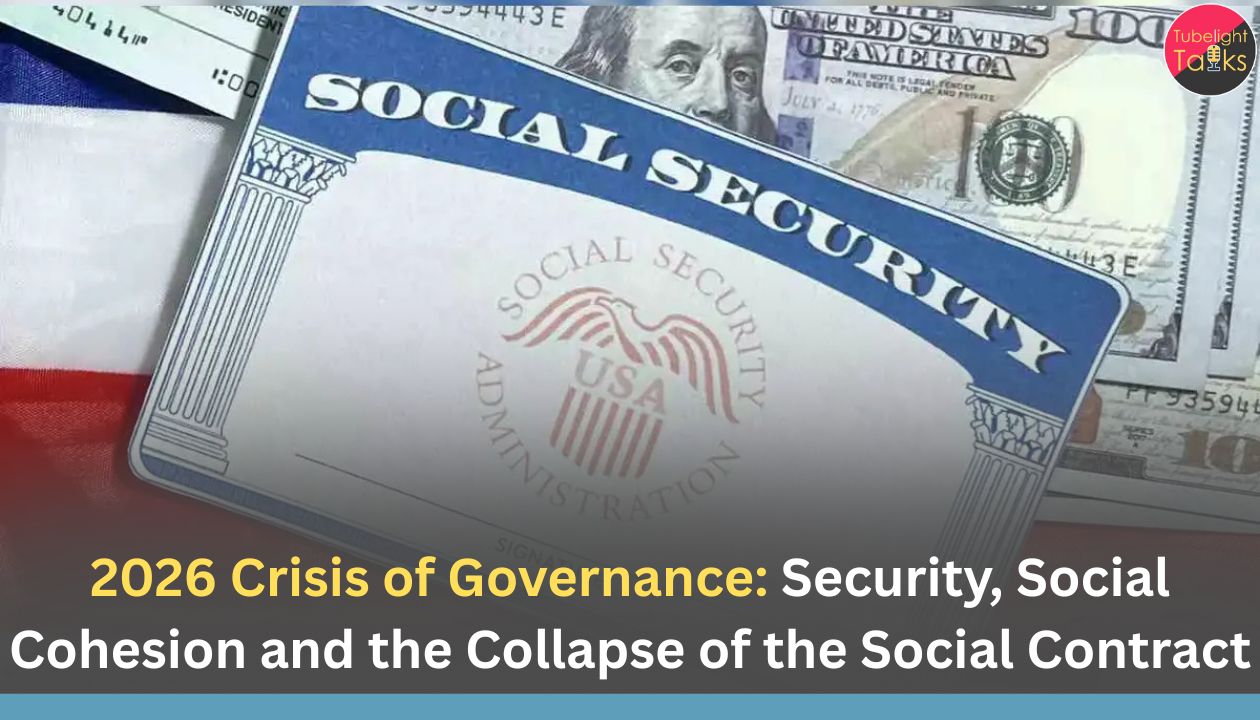




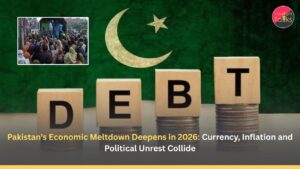
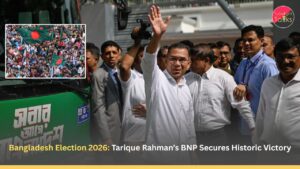
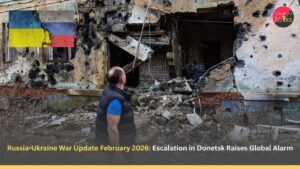


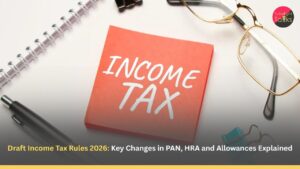
Discussion (0)